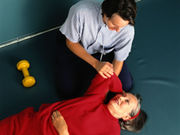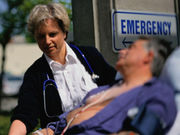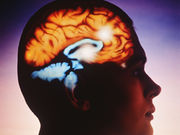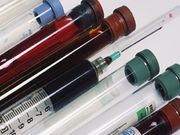Tag: Heart / Stroke-Related: Stroke
FDA Approves Device to Prevent Recurrent Strokes in PFO Patients
For patients who had prior stroke related to patent foramen ovale
Risk of Stroke Appears to Be Up in Younger Pregnant Women
For women ages 12 to 24, pregnancy linked to more than double the risk of stroke
Researchers Say Not All A-Fib Patients Need Anticoagulation
If episodes of atrial fibrillation are brief, risk of stroke is low
Interruptions in Inpatient Stroke Rehab Often Avoidable
Preventable causes include dehydration, heart failure, pneumonia, UTIs
Learning Collaborative Model Cuts Door-to-Needle Times
Reduction in DTN time within one quarter of implementation for patients with ischemic stroke
New Electrical Stimulation Method Ups Dexterity After Stroke
With help of sensor-laden glove, non-affected hand used to regain some control of affected hand
Study Explores Link Between Weight and Stroke Risk in Women
Being overweight ups odds for ischemic stroke, but may slightly lower chances for hemorrhagic stroke
Warfarin Persistence Higher Than Previously Reported in A-Fib
Risk of discontinuation increased with previous intracranial bleeding, excessive alcohol use, anemia
Circulating Biomarkers May Be Indicative of Stroke Risk
High levels of CRP, tHcy, TNFR2, and VEGF indicate significantly higher odds for incident ischemic stroke
Stem Cells May Help Reverse Ischemic Stroke Damage
Experimental treatment helps new brain cells grow














